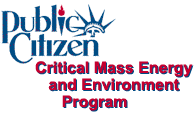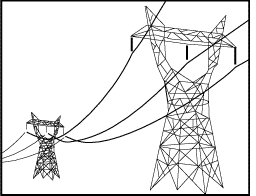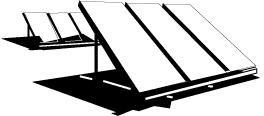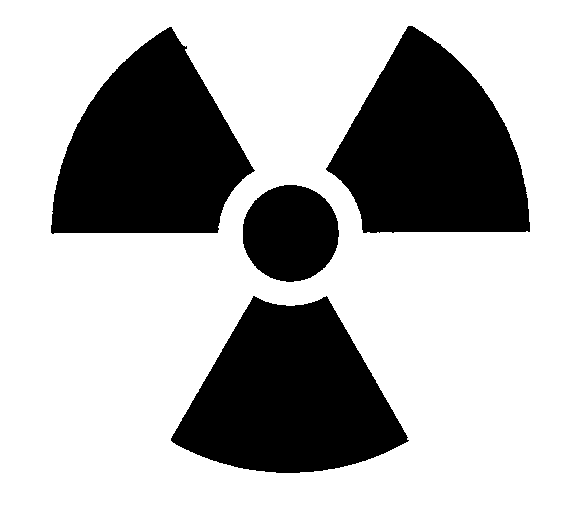
Contacts: Amy Shollenberger (202) 454-5118
Angela Bradbery (202) 588-7741
Public Citizen Calls for Fresh Look
at Nuclear Waste Problem
Many Voices Speak Against Department of Energy’s
Draft Environmental Impact Statement for a Nuclear Waste Repository at Yucca Mountain, Nevada
WASHINGTON, D.C.—Public Citizen’s Critical Mass Director Wenonah Hauter joined 18 other concerned citizens, activists, and scientists yesterday to criticize the Department of Energy’s (DOE) Draft Environmental Impact Statement (DEIS) for a Nuclear Waste Repository at Yucca Mountain, Nevada. Hauter stated in her testimony, "DOE’s Draft Environmental Impact statement does not adequately address the vast number of public health, environmental, and socioeconomic impacts of a geologic repository for nuclear waste at Yucca Mountain, Nevada. Because the proposed repository is such an unprecedented endeavor, every effort must be made to explore the consequences of each and every action associated with building, monitoring, and closing the repository, as well as transporting the waste to the repository."
Hauter went on to point out that the DEIS neither names specific routes for the transportation of radioactive waste to Yucca Mountain, nor describes the environmental, public health, and socioeconomic impacts of transporting the waste along those routes. Hauter also called for the Department of Energy to address emergency response needs along the transportation routes. "The truth is that radioactive waste will need to travel through 43 states, past the homes, workplaces, schools, and hospitals of 50 million Americans to get to Yucca Mountain. Those 50 million Americans have a right to be informed about the risks associated with transporting nuclear waste and the impacts on public health and environment that will occur from the transportation," she explained.
Yesterday’s hearing was the seventh in a series of seventeen sponsored by the Department of Energy to collect public comments on the DEIS. Most of the hearings are scheduled for locations in Nevada, and others are in Atlanta, Georgia; Lone Pine, California; Denver, Colorado; Salt Lake City, Utah; and St. Louis, Missouri. "It is absolutely unacceptable that no hearings will be held in vital transportation hubs such as Cleveland, Ohio, and Chicago, Illinois," Hauter exclaimed. "DOE is trying to hide the facts of nuclear waste transportation and keep the public uninformed about its risks." DOE added a hearing in Carson City, Nevada, after the state of Nevada officially requested it, but has refused to hold a hearing in Chicago, Illinois.
DOE submitted the DEIS in accordance with the Nuclear Waste Policy Act. Its purpose is to provide information on potential environmental impacts that could result from a Proposed Action to construct, operate and monitor, and eventually close a geologic repository for the disposal of spent nuclear fuel and high-level radioactive waste at the Yucca Mountain site. If the Secretary of Energy decides to recommend that the President approve the Yucca Mountain site and the President considers the site qualified for application to the Nuclear Regulatory Commission (NRC) for a construction authorization, the President will submit a recommendation to Congress. The Governor or legislature of Nevada then has 60 days to object to the President’s action. If no objection is made, the site designation will become effective. However, if an objection is made, then the site will be disapproved unless Congress passes a joint resolution to disqualify the site within 90 days and the President signs the resolution into law.
The public can obtain a copy of the DEIS by calling 1-800-881-7292 or visiting the Yucca Mountain Project website at http://www.ymp.gov. Public comments will be accepted on the DEIS until February 2000.
| Critical
Mass Home Email Critical Mass |
 UTILITY DEREGULATION |
 NUCLEAR POWER & REACTOR SAFETY |
 RENEWABLE ENERGY |
 RADIOACTIVE WASTE POLICY |
|
